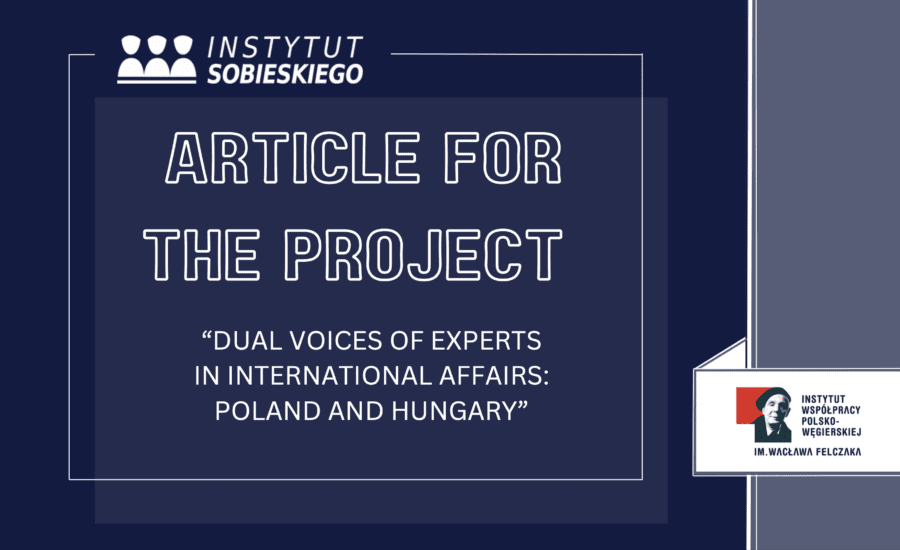
In the frame of the cooperation between the Sobieski Institute and the Europe Strategy Research Institute, Viktória Lilla Pató, academic research fellow of the Europe Strategy Research Institute, provides an insightful analysis of the priorities and potential cooperation areas between Hungary and Poland during their EU Council presidencies. Both countries share regional interests but differ in focus areas, offering opportunities for complementary actions on Central and Eastern European issues.
For its 2025 presidency, Poland plans to prioritize transatlantic relations, EU enlargement, and an equitable energy transition. Hungary, presiding in 2024, focuses on bolstering European competitiveness, enhancing energy security, advancing enlargement and neighborhood policies, and strengthening EU defense capabilities. Their priorities are partly alligned, both presidencies could benefit from coordinated actions, particularly in cohesion policy reform and competitiveness initiatives that support SMEs.
In migration policy, Hungary and Poland oppose mandatory quotas and emphasize strengthening external border protection and addressing migration’s root causes. The countries could jointly advocate for enhanced EU funding for border protection and explore new solutions in asylum policies.
For EU enlargement, Poland emphasizes Ukraine and Moldova’s accession, while Hungary focuses on Western Balkan integration. Both agree that the Copenhagen criteria are essential and support a balanced approach that considers EU integration capacity.
On competitiveness, Hungary’s economic neutrality aligns with Poland’s focus on trade, critical resources, and industrial policy. The Competitiveness Pact willing to be launched under Hungary’s presidency could lay groundwork for Poland’s establishment of a Competitiveness Fund in 2025, aiming to streamline EU regulations and improve SME potential.
Energy priorities differ slightly: Poland emphasizes reducing coal-based economic burdens and modifying ETS2, while Hungary focuses on diversifying energy supplies through renewables and nuclear energy. Both presidencies, however, could support a sustainable green transition aligned with Central and Eastern European economic needs.
Pató concludes that, through collaboration, Hungary and Poland could jointly support cohesion policy reform, coordinated competitiveness efforts, migration and border protection investments, and sustainable energy policies, maximizing their presidencies to better represent regional interests.
The policy paper is available at the Sobieski Institute' website: